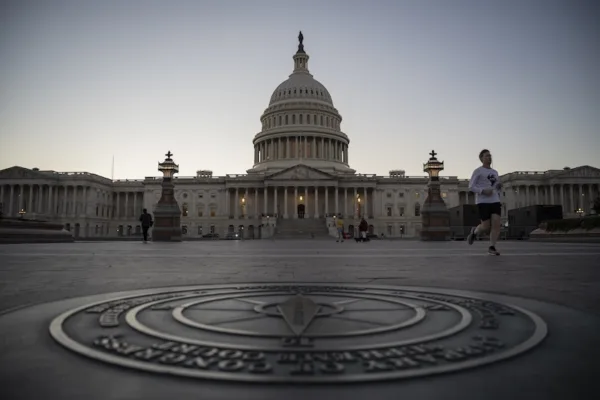Two Elections, Many Funerals and the Curse
This time of year has seen critical turning points in the history of democracy in recent decades. This week, while Poland is celebrating the 25th anniversary of its first semi-democratic presidential election after communism in the company of world leaders, including U.S. President Barrack Obama, and while human rights activists around the world are commemorating the massacre of peaceful pro-democracy activists, students and workers in Tiananmen Square 25 years ago have witnessed two tragicomic undemocratic elections in the Middle East.
In Egypt, a coup leader who almost one year ago overthrew the first democratically elected president and in its aftermath oversaw a violent crackdown on peaceful protesters by killing thousands of them on the streets of Cairo has been elected president in an undemocratic election. The election fell short of meeting international democratic standards. Former Army Chief Abdel Fatah el-Sissi won more than 90 percent of the vote in this neither free nor fair elections after outlawing important opposition groups and censoring intellectuals.
A few days after the Syrian presidential elections started in regions under the control of the regime, many in the West stated the elections are little more than a farce under present circumstances. While Bashar al-Assad and his wife Asma were voting in front of the cameras as part of a ridiculous PR attempt, thousands of others continued to be bombed by the regime forces with barrel bombs and millions of others tried to survive in neighboring countries as refugees. The results of this election are not out yet but most likely we will see another 90-plus percent win for al-Assad.
The most significant problem with both of these elections is the delusion that el-Sissi and al-Assad will legitimize their rule over their respective countries. The message that was delivered after el-Sissi’s election demonstrated this attitude and al-Assad will most likely follow him with a message of democratic triumph and legitimacy to rule. This attitude will make it more difficult to resolve conflicts in both countries and develop democracy in the coming years and decades. Now el-Sissi will promote the election results, regardless of the turnout rate and its fairness, as a public approval of the coup that he led and an affirmation of the crackdown on the Muslim Brotherhood and other opposition groups in the country. He will probably not feel any urge to develop democratic standards in the country and will try to become the next strongman of Egypt to rule the country for decades. Under current economic and political conditions it is highly unlikely that el-Sissi will fix problems in the country and his failure will create mass movements and public unrest in the country. Because of el-Sissi and some delusional groups that laid the groundwork for him, some segments of society learned how to overthrow an elected person from the office without a democratic process and generals in the military learned and some even practiced how to organize a junta and get a civilian career in the politics. Sissi opened Pandora’s Box, which interrupts the democratic process and he may face the difficulty of stopping the boomerang effect of this process during his tenure. Promoting loyal generals and bribing some others with lucrative business deals and positions may not be enough to stop popular coups in the country in the coming years.
On the other hand for al-Assad and his inner circle, election results will constitute another talking point in their ridiculous explanations of why the regime is killing its people. Instead of trying to resolve the conflict in the country, al-Assad will be more emboldened after the election results. The regime will basically promote the idea that elections provided legitimacy for al-Assad as the leader of the state and even legitimize the killing of 180,000 civilians by stating the state’s monopoly on the use of violence. This feeling of legitimacy and electoral victory will make it difficult for the international community to convince al-Assad of a meaningful political settlement of disputes. External patronage, a mafia-like inner ruling circle and decision making mechanism, together with the feeling of public support will make the resolution of the Syrian problem more difficult. We can guess the rest of the scenario, it will change nothing on the ground and a few al-Assad supporters will congratulate him and reaffirm their support for his rule.
In fact, two elections in Syria and Egypt generated further pessimism about the future of these countries, the fate of democracy and the stability of the region as a whole. Both “elected presidents” will continue to use external and domestic threat perceptions in order to distract public attention from their authoritarian rule. However, unlike previous periods of authoritarianism, authoritarianism in its new versions will fail to provide long comfortable tenures for the dictators. Under these circumstances, copycatting the tactics and strategies of former dictators will not bring any good for the “elected presidents” or the countries. A new wave of presidential paranoia will occupy the palaces of the “elected presidents.” Instead of ruling the country they will spend their days and nights preparing against a coup or a riot, just like the King Stefan waited for the curse in the new movie of an old story, “Maleficent.”
This article was originally published in Daily Sabah on June 5, 2014.




















